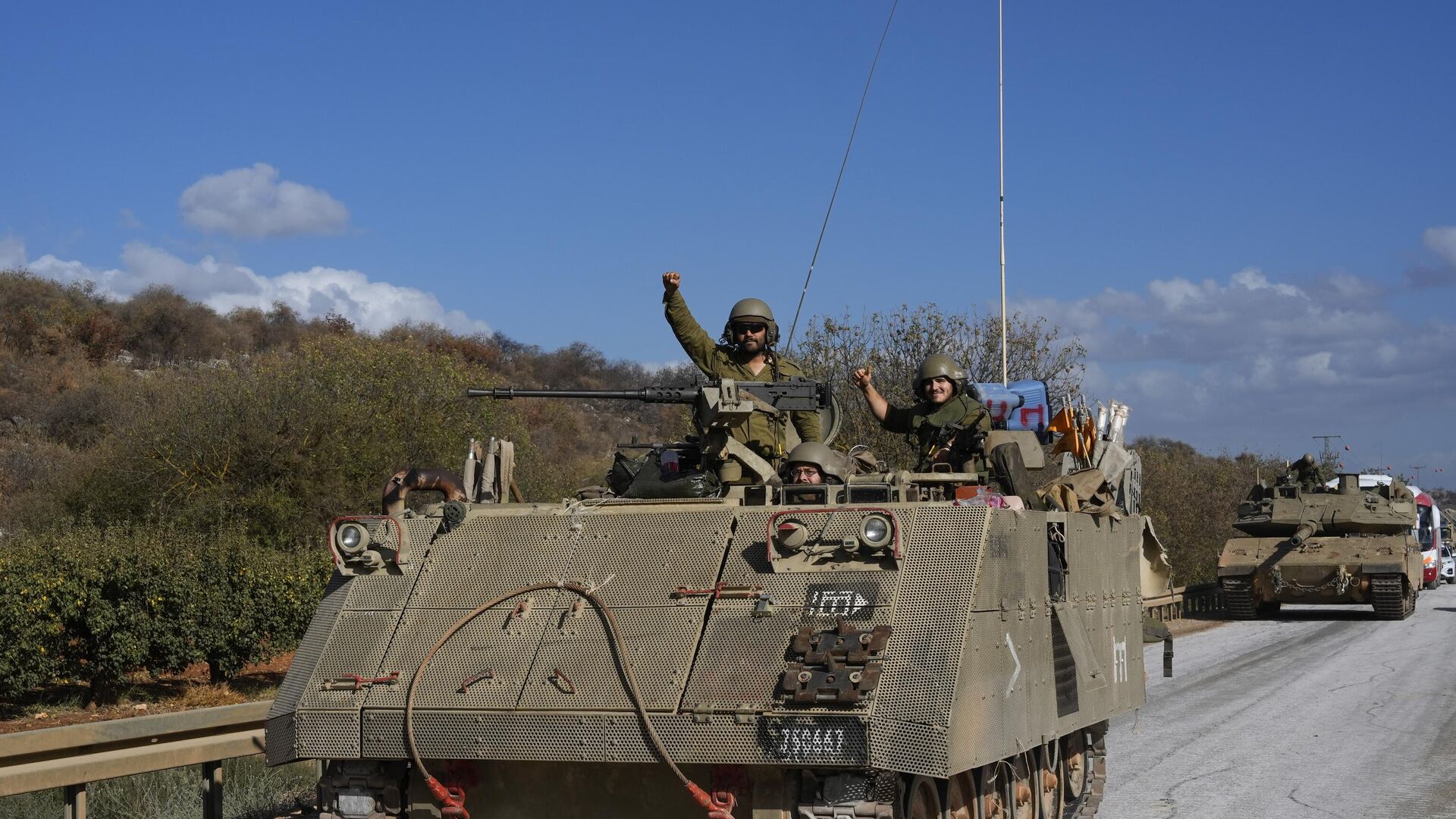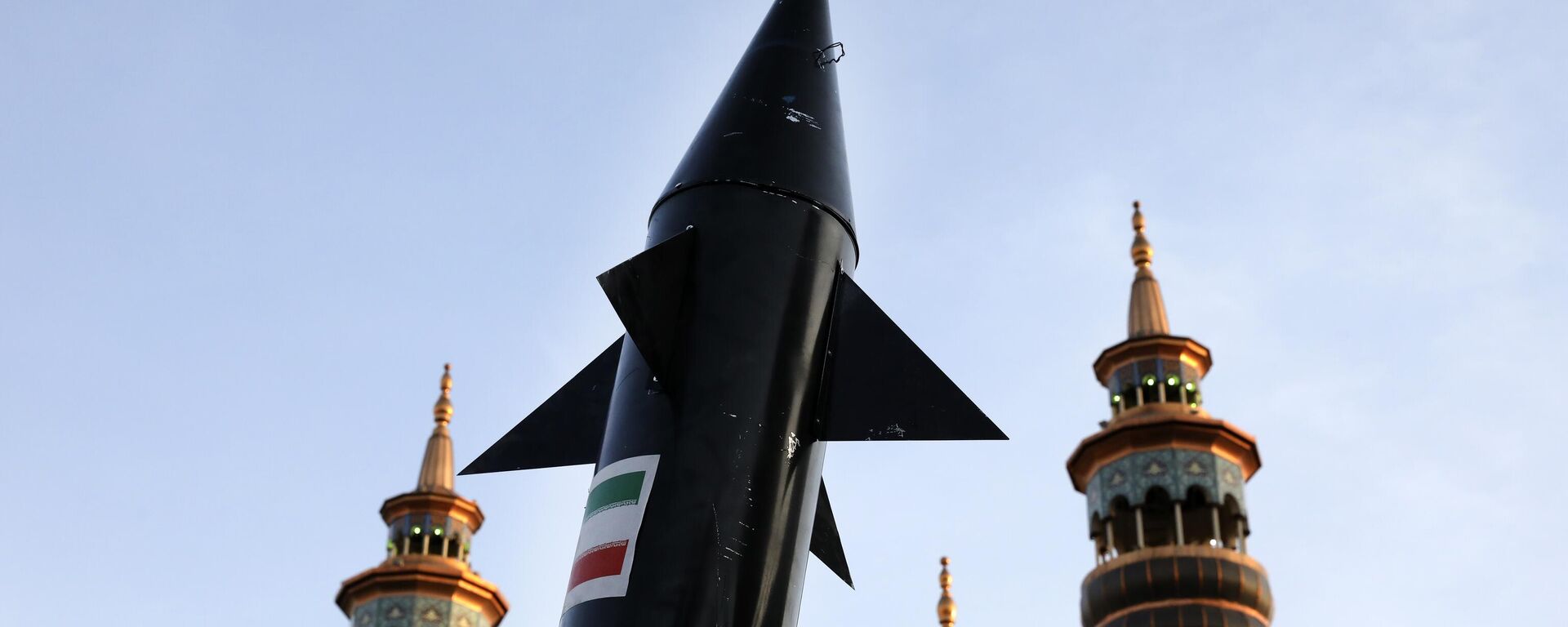https://en.sputniknews.africa/20241002/with-iranian-strikes-israel-faces-multiple-fronts-further-complicating-situation-african-expert-1068524891.html
With Iranian Strikes, Israel Faces Multiple Fronts, Further Complicating Situation: African Expert
With Iranian Strikes, Israel Faces Multiple Fronts, Further Complicating Situation: African Expert
Sputnik Africa
On Tuesday, Iran fired several hundred ballistic missiles at Israel in response to the assassinations of Hezbollah chief Hassan Nasrallah, Hamas political... 02.10.2024, Sputnik Africa
2024-10-02T16:32+0200
2024-10-02T16:32+0200
2024-10-02T16:49+0200
opinion
benjamin netanyahu
israel
lebanon
hezbollah
africa insight
middle east
israeli-palestinian conflict
conflict
palestine
https://cdn1.img.sputniknews.africa/img/07e8/0a/02/1068525408_0:0:3071:1728_1920x0_80_0_0_007c605997e7c27011827cd922c25acd.jpg
With the addition of recent Iranian missile strikes, Israel now faces multiple fronts, further complicating the situation in the troubled Middle East region, where the Jewish state is embroiled in confrontations with Palestine's Hamas, Yemen's Houthis, and Lebanon's Hezbollah, a leading African expert on international relations, told Sputnik Africa.The Iranian attacks on Israel came a day after the Israeli army announced the launch of a limited military ground operation in southern Lebanon, reportedly with no plans to permanently occupy any areas of the country. The Israeli military and the Lebanese Hezbollah movement have been exchanging fire in areas along the border since the start of Israel's military operation in the Gaza Strip last October.Dr. Oscar Van Heerden, a Senior Research Fellow at the Center for African Diplomacy and Leadership at the University of Johannesburg, warned that Israel is making a “terrible mistake” by launching a ground military operation in southern Lebanon, given the timing of such a move. He argued that the move will only escalate the conflict and could have devastating consequences.He dismissed any notion that a point of no return has been reached, suggesting that international pressure from countries like the United States could still force Israel to de-escalate the conflict.The South African academician also emphasized the need for a ceasefire, urging the Israeli government to stop violating international humanitarian law and end the ongoing violence against civilians. Only then, he argues, can parties come to the negotiating table.
https://en.sputniknews.africa/20241002/iran-reportedly-prepared-hundreds-of-missiles-that-could-be-use-if-israel-or-us-strike-back-1068516372.html
israel
lebanon
middle east
palestine
iran
Sputnik Africa
feedback@sputniknews.com
+74956456601
MIA „Rossiya Segodnya“
2024
Muhammad Nooh Osman
https://cdn1.img.sputniknews.africa/img/07e7/04/0a/1058467512_0:0:1280:1280_100x100_80_0_0_ec723833bcbfcaed2e21952965ad99e4.jpg
Muhammad Nooh Osman
https://cdn1.img.sputniknews.africa/img/07e7/04/0a/1058467512_0:0:1280:1280_100x100_80_0_0_ec723833bcbfcaed2e21952965ad99e4.jpg
News
en_EN
Sputnik Africa
feedback@sputniknews.com
+74956456601
MIA „Rossiya Segodnya“
Sputnik Africa
feedback@sputniknews.com
+74956456601
MIA „Rossiya Segodnya“
Muhammad Nooh Osman
https://cdn1.img.sputniknews.africa/img/07e7/04/0a/1058467512_0:0:1280:1280_100x100_80_0_0_ec723833bcbfcaed2e21952965ad99e4.jpg
benjamin netanyahu, israel, lebanon, hezbollah, africa insight, middle east, israeli-palestinian conflict, conflict, palestine, iran, iran’s islamic revolutionary guard corps (irgc), israel defense forces (idf)
benjamin netanyahu, israel, lebanon, hezbollah, africa insight, middle east, israeli-palestinian conflict, conflict, palestine, iran, iran’s islamic revolutionary guard corps (irgc), israel defense forces (idf)
With Iranian Strikes, Israel Faces Multiple Fronts, Further Complicating Situation: African Expert
16:32 02.10.2024 (Updated: 16:49 02.10.2024) Muhammad Nooh Osman
Writer/Editor
On Tuesday, Iran fired several hundred ballistic missiles at Israel in response to the assassinations of Hezbollah chief Hassan Nasrallah, Hamas political leader Ismail Haniyeh, and senior IRGC commander Abbas Nilforoushan. Tehran noted that it does not seek war with Israel but will deal with any threat decisively.
With the addition of recent
Iranian missile strikes, Israel now faces multiple fronts, further complicating the situation in the troubled Middle East region, where the Jewish state is embroiled in confrontations with Palestine's Hamas, Yemen's Houthis, and Lebanon's Hezbollah, a leading African expert on international relations, told
Sputnik Africa.
The Iranian attacks on Israel came a day after the Israeli army announced the launch of a limited military ground operation in southern Lebanon, reportedly with no plans to permanently occupy any areas of the country. The Israeli military and the Lebanese Hezbollah movement have been exchanging fire in areas along the border since the start of Israel's military operation in the Gaza Strip last October.
Dr. Oscar Van Heerden, a Senior Research Fellow at the Center for African Diplomacy and Leadership at the University of Johannesburg, warned that Israel is making a “terrible mistake” by launching a
ground military operation in southern Lebanon, given the timing of such a move. He argued that the move will only escalate the conflict and could have devastating
consequences.
"The timing of this invasion is certainly not good," he said. "[The Israelis] have been there before. They think it's familiar territory. But what they don't realize is that things have significantly changed in Lebanon. Hezbollah and so on have been preparing for this kind of assault."
He dismissed any notion that a point of no return has been reached, suggesting that international pressure from countries like the United States could still force Israel to de-escalate the conflict.
"Prime Minister Netanyahu has been wanting to escalate the war, has been wanting to draw Iran in particular into the war, because that means that he can continue with the war effort, continue staying in his position, because, as you know, he's not wanting the war to stop," Dr. Van Heerden asserted.
The South African academician also emphasized the need for a
ceasefire, urging the Israeli government to stop violating international humanitarian law and end the ongoing violence against civilians. Only then, he argues, can parties come to the negotiating table.
"The killing of civilians has to stop," he said. "The game is really in the hands of Israel. And at the moment, given the massive support that they are receiving from Western powers… Israel is not going to stop for as long as they have the backing and support of all of these countries."



